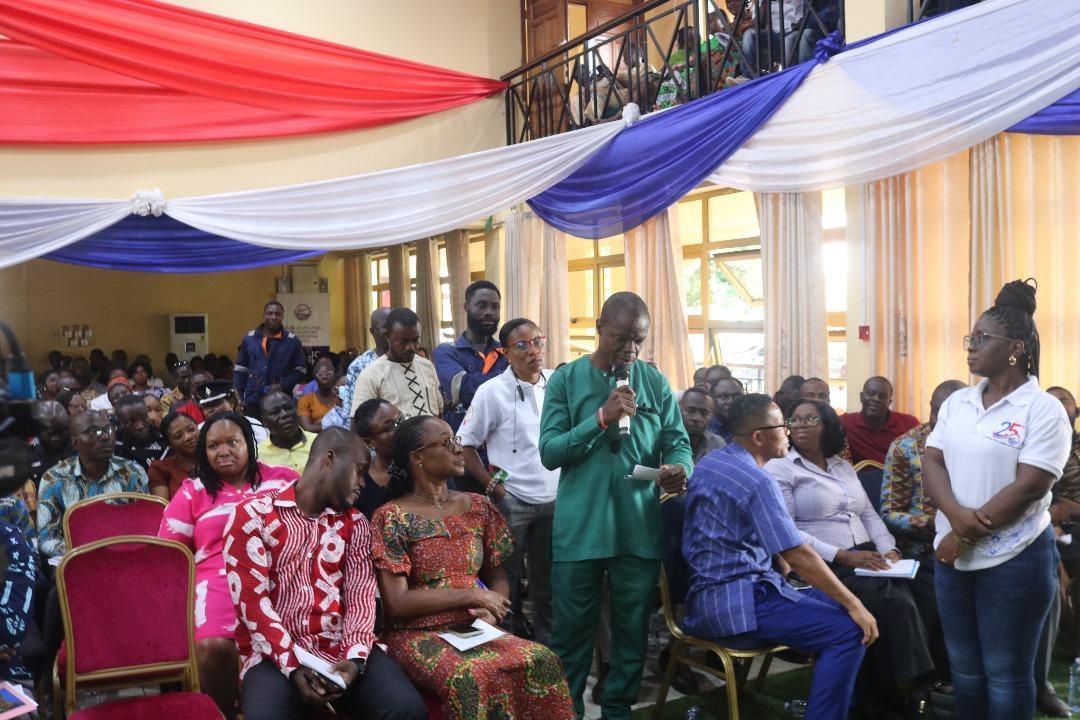Africa-Press – Ghana. Utility companies in Ghana have appealed for public support on their proposed tariff increase, saying that would allow them to generate more revenue for investment and service improvement.
The Volta River Authority (VRA), Ghana Grid Company (GRIDCo), Electricity Company of Ghana (ECG) and Ghana Water Company Limited (GWCL) respectively, justified their demands for adjustments in the tariffs, citing rising operational costs and infrastructure maintenance needs.
At a public hearing on the Multi –Year Tariff Order for 2025-2029/2030 organised by the Public Utilities Regulatory Commission (PURC) Tuesday, in Ho, they presented to the participants their initiatives since the last tariff review in 2022, their challenges, planned initiatives and the benefits thereof for consumers.
The ECG, proposing a 225 per cent increase in its distribution service charge, described the current tariff as woefully inadequate, which could not represent the actual cost of electricity provision.
Mr Michael Okley, the General Manager for Financial Planning, ECG during a presentation said the power distributor in 2023, lost about 700 electricity poles (estimated at a cost of GH¢560,000.00) to bushfires in Volta Region alone, deemed to have been caused by activities of farmers, palm wine tappers, hunters and nomads.
He said ECG undertook projects including system automation, voltage improvement and commercial improvement works from 2022 and expected that the proposed new tariff would help it carry out other projects to ensure constant and reliable electricity supply to consumers.
Mr Michael Tawiah Klutse, the Chief Manager for Corporate Planning, Monitoring and Evaluation at GWCL, said the Company was seeking a 280 per cent increase in water tariff over increased operational costs, particularly for water treatment chemicals and infrastructure maintenance among others saying, not just water but “clean water is life.”
It said adjusting the current tariff of GH¢5.28 per 1,000 litres to GH¢20.00 per 1,000 litres would help them make the right investment to promote water production and distribution across the country.
The VRA, seeking approval to raise its Bulk Generation Charge from 45.0892 pesewas per kilowatt-hour to 71.8862 pesewas per kilowatt-hour (representing 59 per cent) explained that the current tariff was challenging its provision of reliable power and servicing its financial obligations.
It mentioned projects like the Sea Water Reverse Osmosis at Aboadze and the AMERI Relocation Phase 1 since the last tariff increment and noted it needed more revenue to implement other projects including construction of mini grids to cater for the power needs of island communities.
GRIDCo, seeking an increase in its transmission service from 5.6422 pesewas per kilowatt-hour to 12.9768 pesewas per kilowatt-hour (representing 130 percent), said the proposal was critical for the company’s survival and investment needs.
Participants during the forum expressed disappointment with the proposals saying, they were excessive and would worsen the economic conditions, especially for artisans and would only deepen the “struggles of the ordinary Ghanaian.”
One of them, Madam Philomena Mordey, a representative from Roman Catholic Church, Ho Diocese said the utility providers all the time used “service improvement” as a bait to increase their tariffs but ended up giving poor services.
Mr Moses Asaga, the Board Chairman, PURC refuted claims that the Commission had always been on the side of the utility companies, noting that PURC aimed to balance economic realities with social considerations to protect both consumers and service providers.
Nana Yaa Jantuah, the Chairperson of the Stakeholder Committee, PURC, said the public hearing at Ho, which was the third to be held, formed part of a nationwide process to review the proposals submitted by the utility companies, saying such increments presently remained as mere proposals.
For More News And Analysis About Ghana Follow Africa-Press







